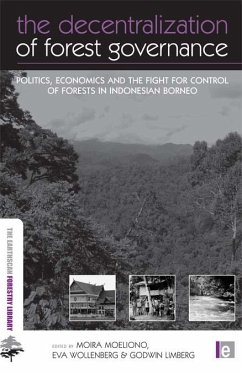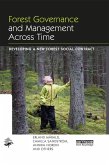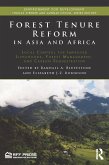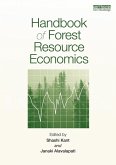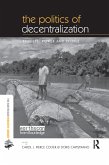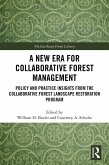'This book provides an excellent overview of more than a decade of transformation in a forest landscape where the interests of local people, extractive industries and globally important biodiversity are in conflict. The studies assembled here teach us that plans and strategies are fine but, in the real world of the forest frontier, conservation must be based upon negotiation, social learning and an ability to muddle through.'
Jeffrey Sayer, senior scientific adviser, Forest Conservation Programme IUCN - International Union for of Nature
The devolution of control over the world's forests from national or state and provincial level governments to local control is an ongoing global trend that deeply affects all aspects of forest management, conservation of biodiversity, control over resources, wealth distribution and livelihoods. This powerful new book from leading experts provides an in-depth account of how trends towards increased local governance are shifting control over natural resource management from the state to local societies, and the implications of this control for social justice and the environment.
The book is based on ten years of work by a team of researchers in Malinau, Indonesian Borneo, one of the world's richest forest areas. The first part of the book sets the larger context of decentralization's impact on power struggles between the state and society. The authors then cover in detail how the devolution process has occurred in Malinau, the policy context, struggles and conflicts and how Malinau has organized itself. The third part of the book looks at the broader issues of property relations, conflict, local governance and political participation associated with decentralization in Malinau. Importantly, it draws out the salient points for other international contexts including the important determination that 'local political alliances', especially among ethnic minorities, are taking on greater prominence and creating new opportunities to influence forest policy in the world's richest forests from the ground up.
This is top-level research for academics and professionals working on forestry, natural resource management, policy and resource economics worldwide.
Published with CIFOR
Jeffrey Sayer, senior scientific adviser, Forest Conservation Programme IUCN - International Union for of Nature
The devolution of control over the world's forests from national or state and provincial level governments to local control is an ongoing global trend that deeply affects all aspects of forest management, conservation of biodiversity, control over resources, wealth distribution and livelihoods. This powerful new book from leading experts provides an in-depth account of how trends towards increased local governance are shifting control over natural resource management from the state to local societies, and the implications of this control for social justice and the environment.
The book is based on ten years of work by a team of researchers in Malinau, Indonesian Borneo, one of the world's richest forest areas. The first part of the book sets the larger context of decentralization's impact on power struggles between the state and society. The authors then cover in detail how the devolution process has occurred in Malinau, the policy context, struggles and conflicts and how Malinau has organized itself. The third part of the book looks at the broader issues of property relations, conflict, local governance and political participation associated with decentralization in Malinau. Importantly, it draws out the salient points for other international contexts including the important determination that 'local political alliances', especially among ethnic minorities, are taking on greater prominence and creating new opportunities to influence forest policy in the world's richest forests from the ground up.
This is top-level research for academics and professionals working on forestry, natural resource management, policy and resource economics worldwide.
Published with CIFOR
Dieser Download kann aus rechtlichen Gründen nur mit Rechnungsadresse in A, B, BG, CY, CZ, D, DK, EW, E, FIN, F, GR, HR, H, IRL, I, LT, L, LR, M, NL, PL, P, R, S, SLO, SK ausgeliefert werden.

